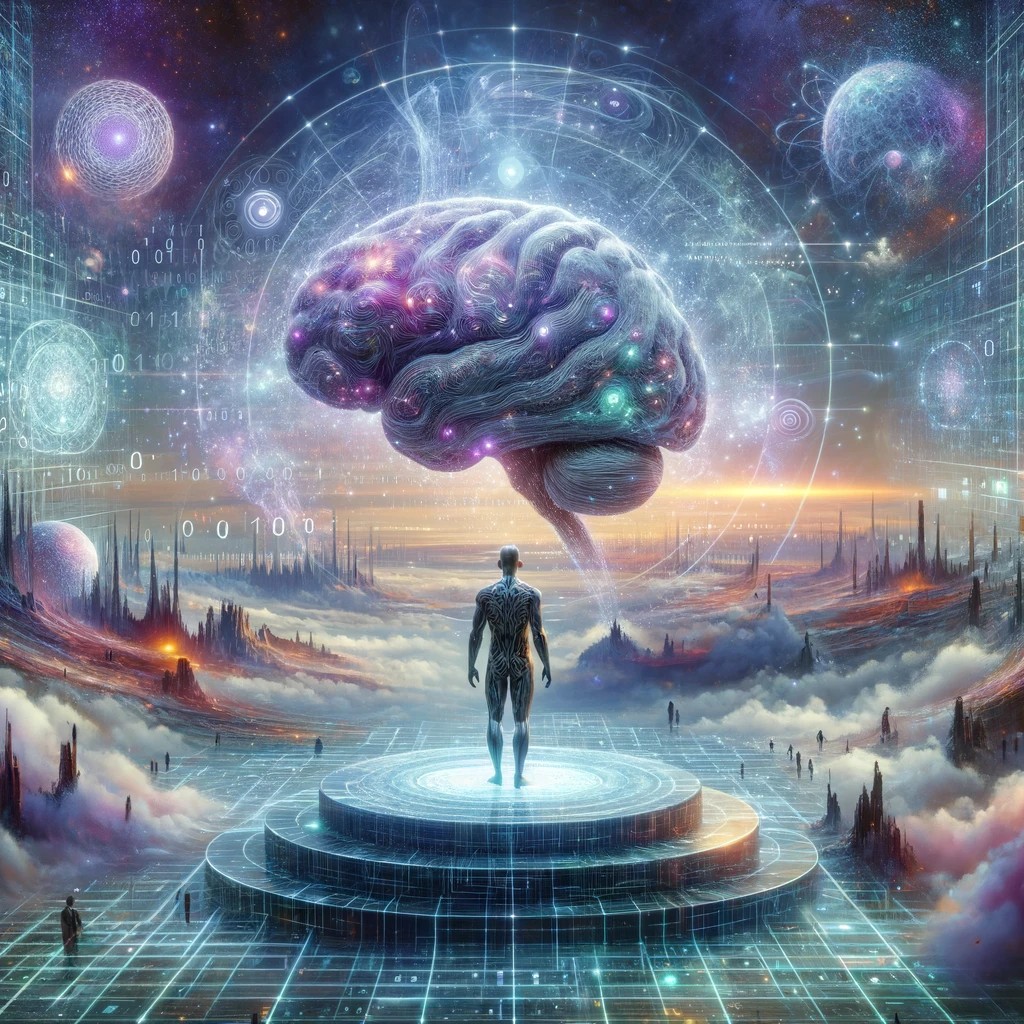The Evolution of Thought: The Future of AI Philosophy
 Moidhin Ramshid
Moidhin Ramshid
As we delve deeper into the age of artificial intelligence, the philosophical implications of AI are becoming increasingly profound and complex. AI philosophy, a discipline that explores the ethical, existential, and cognitive aspects of AI, stands at the intersection of technology and human values. Looking ahead, the future of AI philosophy is set to navigate uncharted territories, raising questions and considerations that could redefine our understanding of intelligence, consciousness, and the human experience. Here's an exploration into the potential and challenges that lie in the future of AI philosophy.
Rethinking Intelligence and Consciousness
A pivotal area of AI philosophy will be the redefinition of intelligence and consciousness. As AI systems exhibit increasingly advanced cognitive capabilities, the line between artificial and human intelligence will blur. This will lead to deeper philosophical inquiries about what it means to be intelligent or conscious and whether these attributes are exclusive to humans.
Ethical Frameworks for AI Development
The future of AI philosophy will also grapple with the development of ethical frameworks for AI. This involves addressing issues such as AI rights, the moral implications of AI decision-making, and the ethical use of AI in areas like surveillance, warfare, and personal data. The challenge will be to create guidelines that ensure AI benefits humanity while respecting individual rights and freedoms.
The Impact of AI on Human Identity and Society
AI philosophy will explore the impact of AI on human identity and societal structures. Questions will arise about the role of AI in shaping our perceptions of self, the nature of work in an AI-driven world, and the societal implications of widespread AI integration. This will involve examining how AI influences our values, cultural norms, and social interactions.
AI and the Exploration of Consciousness
Another fascinating area of AI philosophy will be the exploration of consciousness through AI. By studying AI systems, philosophers and scientists may gain new insights into the nature of consciousness, including whether it can emerge in non-biological entities. This could lead to groundbreaking understandings of consciousness, both in AI and in biological beings.
The Moral Status of AI
As AI systems become more sophisticated, determining their moral status will become a central philosophical question. This involves considering whether advanced AI deserves rights or protections and how to balance AI autonomy with human oversight. The moral status of AI will have significant implications for how we interact with and manage AI systems.
AI, Creativity, and the Human Spirit
AI philosophy will also examine the impact of AI on creativity and the human spirit. As AI begins to participate in creative endeavors like art and music, questions will arise about the nature of creativity and the role of human uniqueness in the creative process. This will challenge traditional notions of art, authorship, and the human spirit.
AI and the Nature of Knowledge
The future of AI philosophy will delve into the nature of knowledge and understanding. As AI systems become capable of processing and synthesizing vast amounts of information, the way we define knowledge and understanding may evolve. This will involve exploring the differences between human and AI cognition and the implications for knowledge acquisition and dissemination.
The Long-Term Future and Existential Risk
AI philosophy will also address the long-term future of humanity in the context of AI. This includes considering existential risks associated with AI, such as the potential loss of human control over advanced AI systems, and how to mitigate these risks. Philosophers will play a crucial role in guiding the responsible development and deployment of AI technologies.
Conclusion
The future of AI philosophy is not just an academic pursuit but a critical exploration of our relationship with technology and its implications for the human condition. As AI continues to advance, the questions and challenges posed by AI philosophy will become increasingly central to our understanding of ourselves and our place in the world. In navigating these complex issues, AI philosophy will not only guide the ethical development of AI but also deepen our understanding of intelligence, consciousness, and what it means to be human in an AI-infused future.
Subscribe to my newsletter
Read articles from Moidhin Ramshid directly inside your inbox. Subscribe to the newsletter, and don't miss out.
Written by
